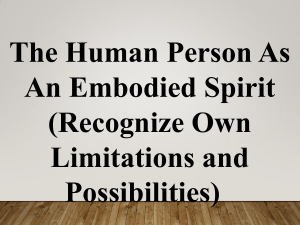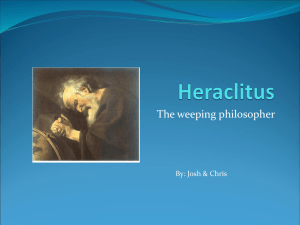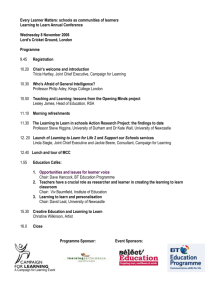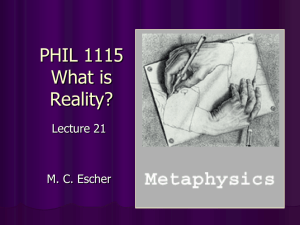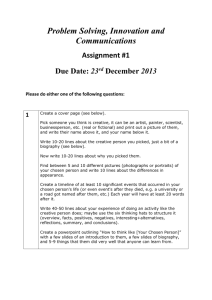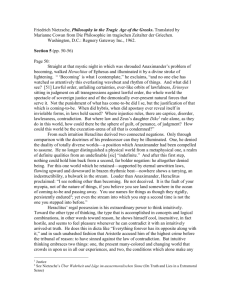Is That a Fish in Your Ear
advertisement
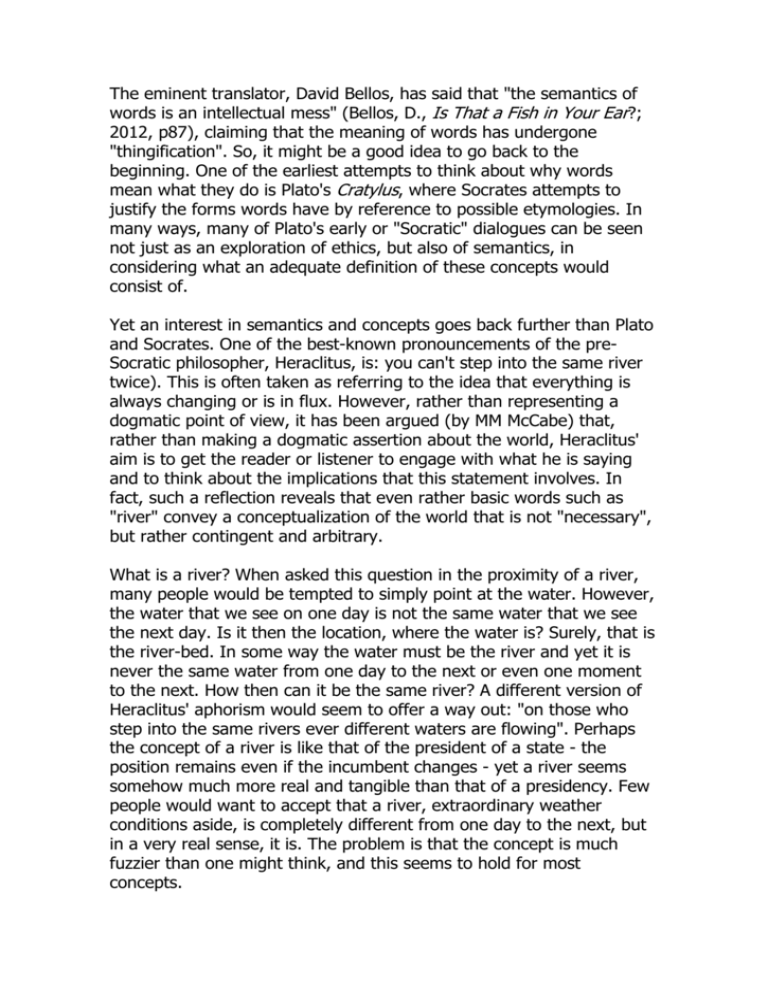
The eminent translator, David Bellos, has said that "the semantics of words is an intellectual mess" (Bellos, D., Is That a Fish in Your Ear?; 2012, p87), claiming that the meaning of words has undergone "thingification". So, it might be a good idea to go back to the beginning. One of the earliest attempts to think about why words mean what they do is Plato's Cratylus, where Socrates attempts to justify the forms words have by reference to possible etymologies. In many ways, many of Plato's early or "Socratic" dialogues can be seen not just as an exploration of ethics, but also of semantics, in considering what an adequate definition of these concepts would consist of. Yet an interest in semantics and concepts goes back further than Plato and Socrates. One of the best-known pronouncements of the preSocratic philosopher, Heraclitus, is: you can't step into the same river twice). This is often taken as referring to the idea that everything is always changing or is in flux. However, rather than representing a dogmatic point of view, it has been argued (by MM McCabe) that, rather than making a dogmatic assertion about the world, Heraclitus' aim is to get the reader or listener to engage with what he is saying and to think about the implications that this statement involves. In fact, such a reflection reveals that even rather basic words such as "river" convey a conceptualization of the world that is not "necessary", but rather contingent and arbitrary. What is a river? When asked this question in the proximity of a river, many people would be tempted to simply point at the water. However, the water that we see on one day is not the same water that we see the next day. Is it then the location, where the water is? Surely, that is the river-bed. In some way the water must be the river and yet it is never the same water from one day to the next or even one moment to the next. How then can it be the same river? A different version of Heraclitus' aphorism would seem to offer a way out: "on those who step into the same rivers ever different waters are flowing". Perhaps the concept of a river is like that of the president of a state - the position remains even if the incumbent changes - yet a river seems somehow much more real and tangible than that of a presidency. Few people would want to accept that a river, extraordinary weather conditions aside, is completely different from one day to the next, but in a very real sense, it is. The problem is that the concept is much fuzzier than one might think, and this seems to hold for most concepts. So, how do words refer at all if the concepts they convey are so hard to pin down? The answer to this riddle would seem to be that, for humans, concepts are useful rather than true characterisations of reality. They are frames that we place on the world and that seem to enable us to communicate successfully, most of the time, with other people. Words are often said to be arbitrary, in the sense that there is no especial reason why the concept of "chair" should be referred to using the word chair. What is often overlooked is that fact that the concept is not a necessary characterisation of reality either: it's just one that English-speaking people, at least, seem to find useful. We would not normally say that a bench is a kind of chair, yet there's no absolute reason why not - we simply choose not to include "bench" within the concept of "chair". One consequence of this is that the characterisation of a concept is not fixed, as there is no direct connection with the external world. A concept may be useful now, but not in the future. It might be useful for the concept of “palace” to concern the residence of an absolute monarch and for it to be used to refer to a large wooden hut with a thatched roof, at one time for one group of people, but not for another group at another time. Concepts are heuristics, ways of enabling us to think about reality, but with no direct connection with it: this might seem more obvious for "abstract" concepts, but it is also the case for more "concrete" concepts. In fact, both types of concept are abstract - we might even say a concept is abstract by definition, as it can only exist inside our heads. More "concrete" concepts are thought to have real counterparts, but, as we have seen, the reality of a basic concept as "river" is elusive. The fact that concepts are so slippery is one reason, among many, why words are so vulnerable to change in meaning. From this perspective, seeing concepts as useful characterizations rather than ones which have a direct and permanent correspondence with reality, it is easier to understand why a word for “cheek” can change to mean “mouth” (Latin BUCCA > Spanish boca) If this is the case for nouns referring to such seemingly tangible objects such as rivers, chairs, and cheeks, how much more elusive and vulnerable to change might a verb be?
